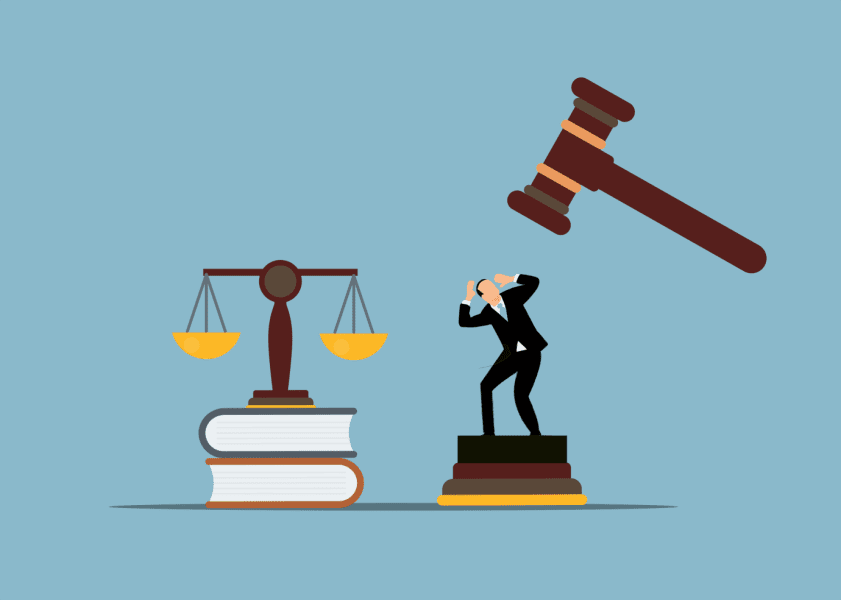Facing a criminal charge—no matter how minor it may seem—can be a life-altering experience. It’s natural to feel overwhelmed, embarrassed, or unsure of what to do next. Some people even convince themselves that ignoring the charge might make it go away, especially if they believe it’s a misunderstanding or a first-time offense. Unfortunately, that approach can lead to serious consequences that follow you for years.
Criminal charges carry significant legal and personal risks, from hefty fines and license suspensions to permanent marks on your record and jail time. The choices you make immediately after being charged can directly influence the outcome of your case and your future. If you or someone you know is facing any criminal accusation, it’s important to take it seriously—regardless of the circumstances.
Here’s why ignoring a criminal charge is never a smart move—and what you should do instead to protect your rights, reputation, and freedom.

The Legal Process Won’t Wait for You
The criminal justice system operates on strict timelines. If you’ve been charged, the court has already begun building a case against you. There will be scheduled court appearances, paperwork to complete, and deadlines to meet. Ignoring these responsibilities won’t delay the process—it will only make things worse. Most expert lawyers will tell you that failure to appear in court or respond to summonses can lead to additional charges, arrest warrants, and automatic convictions. You could face contempt of court or be seen as uncooperative, damaging your credibility and reducing your chances of a favorable outcome.
Whether you believe the charges are minor or unfounded, missing your court dates signals to the judge that you’re not taking the matter seriously. Judges tend to view this as disrespectful, and it can influence everything from bail decisions to sentencing.
Even Minor Charges Can Leave a Lasting Impact
Some individuals think that if the charge isn’t a felony—or if it’s their first offense—it’s not worth worrying about. This couldn’t be further from the truth. Misdemeanors and other low-level charges can still lead to criminal records, fines, probation, community service, or even jail time.
Beyond legal penalties, a criminal record can affect your job prospects, housing applications, immigration status, and access to financial aid. Many employers and landlords conduct background checks, and a conviction—even for a misdemeanor—can raise red flags that follow you for years.
Charges related to DUI, assault, theft, or drug possession often come with consequences that extend well beyond the courtroom. You could lose your driver’s license, be subject to random drug testing, or be required to complete lengthy treatment programs. These obligations can disrupt your daily life, job, and relationships.
Ignoring the Charge Eliminates Opportunities for Defense
One of the most damaging consequences of ignoring a criminal charge is that you lose the chance to build a proper defense. Every case has variables, and your attorney may be able to negotiate a reduced charge, secure a diversion program, or even get the charges dismissed entirely. But that can’t happen if you avoid the process altogether.
The earlier you engage with a legal professional, the more time they have to examine the evidence, speak with witnesses, and explore alternative resolutions. In many jurisdictions, prosecutors may offer more lenient deals to first-time offenders or those who demonstrate responsibility early on. By ignoring the charge, you eliminate any possibility of these favorable options.
Taking Responsibility Doesn’t Mean Admitting Guilt
Some people avoid addressing a criminal charge because they worry that getting involved will make them seem guilty or increase the chance of conviction. But taking responsibility for your situation doesn’t mean you’re admitting guilt—it means you’re actively protecting your rights and setting yourself up for the best possible resolution.
Cooperating with the court and seeking legal guidance shows that you are taking the matter seriously and are willing to work within the system. Judges and prosecutors tend to respond more favorably to individuals who demonstrate responsibility and respect for the process.
Early Action Can Minimize Long-Term Consequences
In some cases, taking early steps can keep a criminal charge from ever appearing on your permanent record. Certain diversion programs, deferred adjudication agreements, or alternative sentencing options are only available at the beginning stages of a case. These programs may allow you to complete community service, attend counseling, or fulfill other requirements in exchange for the dismissal of charges.
But these options are time-sensitive, and once deadlines pass or court dates are missed, they’re usually no longer available. Acting quickly gives you the widest range of choices and the best shot at a clean slate.

Criminal charges are serious matters—regardless of their severity. Ignoring them can lead to escalating legal trouble, lost opportunities, and long-term consequences that affect every area of your life. But when you face the situation head-on, educate yourself, and get professional legal support, you take control of your future.
HedgeThink.com is the fund industry’s leading news, research and analysis source for individual and institutional accredited investors and professionals




































